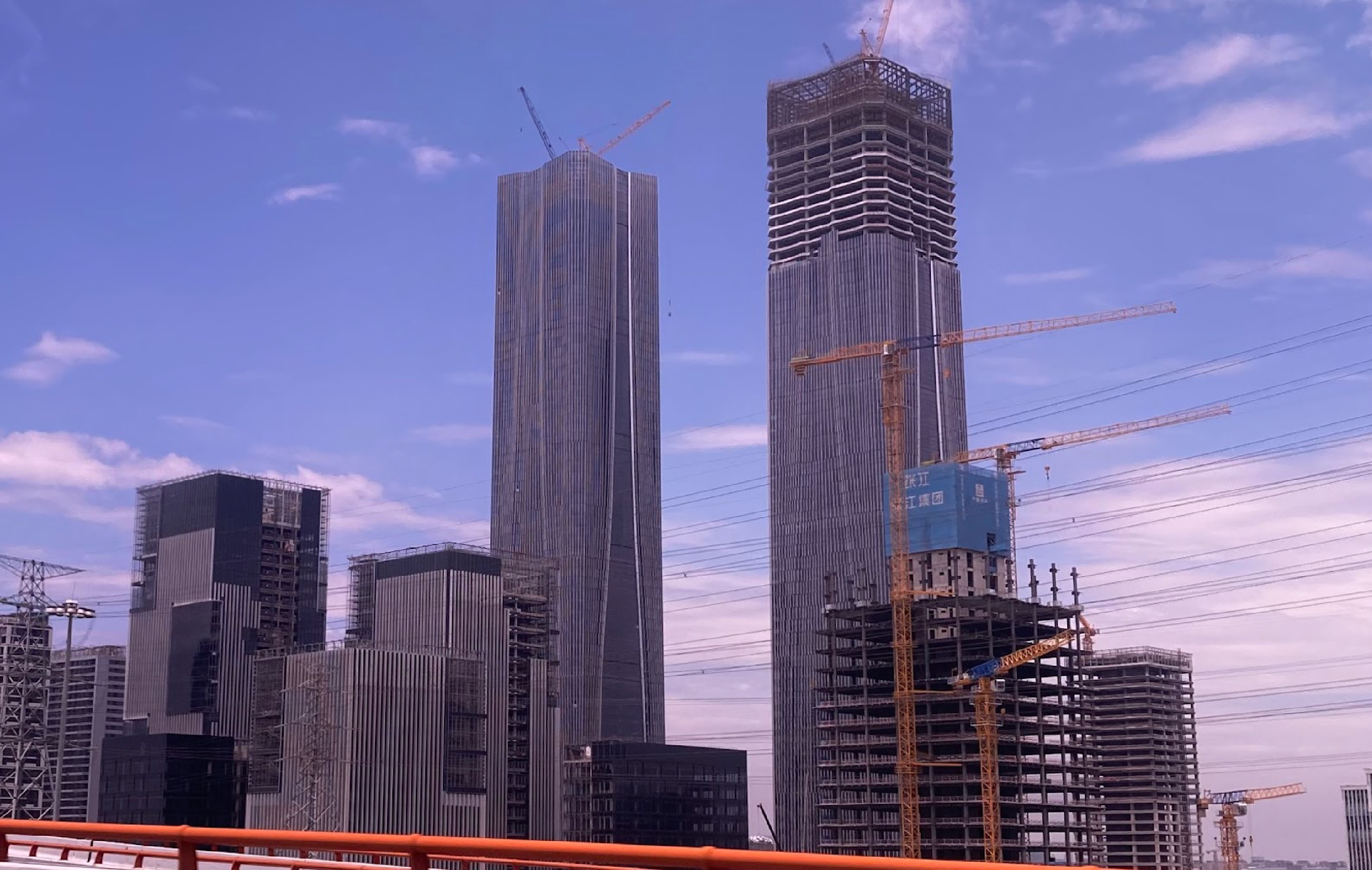
What role might technology play in making the housing market more equitable? How can Shanghai’s rapid urbanization help us think about culture and society? NYU Shanghai’s Assistant Professor of Urban Studies Tyler Haupert researches these questions. An affiliate with CASER and 2 years into his position at NYU Shanghai, Haupert sat down to talk with us about his current projects and gave advice on how we can reflect on our own positions as residents of rapidly developing cities.
Congratulations on winning “Paper of the Year” in the academic journal Housing Policy Debate. Can you walk us through your research?
My paper is about assessing racial disparities in fintech mortgage lending in the United States. I aim to investigate whether fintech mortgage lenders distribute subprime loans at higher rates to Black and Latino borrowers (relative to white and Asian borrowers) in the way that traditional lenders do. A fintech lender uses machine learning algorithms fueled by a bunch of unique data sources to underwrite loans. Traditional lenders have been found to discriminate against Black and Latino borrowers, and many people thought the fintech lenders would discriminate less.
But your findings indicate that fintech does not actually help in alleviating discrimination. Why is that?
All of the big data sources that the algorithm uses to assess a borrower's profile – things like social media friend groups, credit cards spending, and geographic location - these can all be proxies for race.
When it comes to approvals - whether an applicant gets a loan or not - the fintech lenders show a little bit less racial bias than traditional lenders. But the interest rate for these loans is probably going to be higher in a way that systematically varies across racial lines.
Fintech mortgage lending is an underregulated industry and I hope that the findings of my studies will encourage regulators to more closely examine the data being used by the fintech lenders, because the outcomes are no better than the traditional lenders. If they're still lending with these racial patterns, I suggest that they need to be regulated with more scrutiny.
How did you develop an interest in housing inequality?
After undergrad, I did a program called Teach for America (TFA) in Southern Louisiana. That was the first time I was exposed to really severe racial segregation - really obvious physical lines, separating white and Black populations with huge disparities in the quality of housing, built environment, services, public services, education, streets, sidewalks, parks, everything. I would often see how my students’ performance in the classroom was impacted by their poor housing conditions.
After TFA, I worked for a few years developing affordable housing in Los Angeles on Skid Row. I saw again how homelessness is also super- racialized. This nexus of racial disparities and housing resources made me really want to go back to school, get an PhD, and do studies that would inform the policy at a broad level and have a bigger impact.
What other projects do you have going on?
I'm looking at how fintech small business lenders are impacting the small business funding outcomes in the US. I also have a project examining how COVID impacted home prices in the US, considering whether being able to work from home influenced people’s decisions to buy what kind of home. I'm working on a paper looking at the positive impacts and outcomes that home ownership has on people’s health in Hong Kong. Finally, I’m working on a paper that looks at whether opportunity zones–a Trump-era tax incentive–led to increased affordable housing development or not.
At NYUSH you teach the courses Housing and Urbanization, Global Urbanization and the Senior Capstone for Social Science students. What do you hope your students will come away with?
I always try to draw students’ attention to disparities, be those racial, ethnic, or socioeconomic status disparities.
My courses tend to be very policy-focused. I like to challenge students to look at pros and cons in policy, even those that are seen as huge successes or seen as huge failures, to challenge them to think about. What are the mechanisms that made it successful? How could it have been better? Why might it have failed or succeeded, based on the context it was implemented? Maybe there are good outcomes for the economy or for businesses. But what are the social outcomes for individuals on the ground and for communities? I want my students to be sophisticated consumers of policies and think about how policies could be applied successfully across different contexts.

A new skyscraper development in Shanghai’s Pudong New Area (Zhangjiang). Photo by Tyler Haupert
As an urbanist, what advice do you have for how we can view our lives as urban residents in a new way?
In a place like Shanghai, you see cranes and construction everywhere. For every story of something new going up here there’s another side of the coin - what did we demolish? What is being replaced? What sort of cultural heritage or neighborhood solidarity or environmental resource are we losing? I think the development of a place like Shanghai is super exciting, but there's always an inequality, or a disparity, or a loss that comes with a new thing.
I just think that in a place– not just in China, but anywhere you're seeing rapid urbanization– you're seeing a lot of money to be made; there's always the downside of that type of development. And so I hope people can recognize that there is always a loss or an inequality being produced when an urban space is changing.

